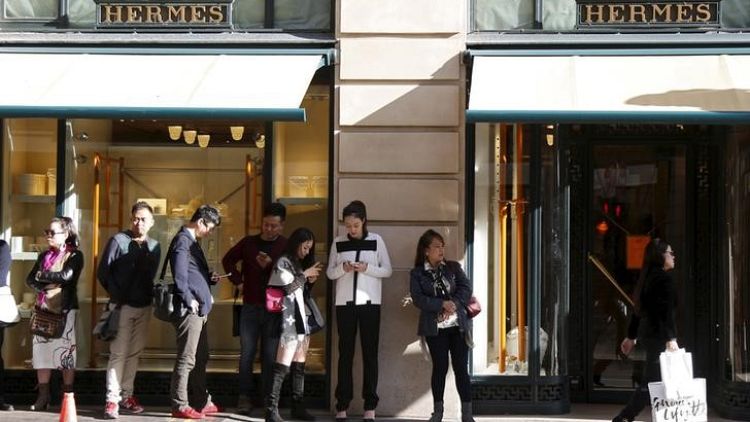PARIS (Reuters) - France's economy eked out less growth than expected in the second quarter as strikes and higher taxes hit consumer spending, official data showed on Friday, but economists looked to the second half of the year for an upturn.
The euro zone's second-biggest economy posted quarterly growth of 0.2 percent for the second quarter in a row, the INSEE stats agency said in a first estimate that fell short of economists' average expectation for 0.3 percent.
"Growth is likely to regain momentum in the second half of 2018, as adverse one-off factors reverse while some tailwinds kick in," Unicredit economist Tullia Bucco wrote in a research note.
Consumers faced higher social security contributions and fuel taxes at the start of the year, but will benefit from a cut in payroll taxes in October.
Without a pickup in activity, the 1.7 percent growth forecast that President Emmanuel Macron's government built its 2017 budget on would be at risk.
In the second quarter, consumer spending growth, traditionally the main motor of the French economy, fell 0.1 percent as a series of railway strikes weighed on transport services spending, INSEE said.
Workers at state-owned railway SNCF staged rolling strikes from April through June against a major reform that would end some of their perks.
In addition to the strikes, Morgan Stanley economist Matthew Pennill said that inflation had also weighed on consumers spending in the second quarter.
"Inflation should stabilise, rather than accelerate further, while lower employee social contributions this autumn should support spending and boost second half GDP," he wrote in a research note.
Macron, who says he wants to "make work pay", is cutting payroll taxes for workers in two stages, in January and October this year. That is offset by an increase in a wider income tax which weighs on pensioners more and was frontloaded to January.
Meanwhile, business investment bounced back in the second quarter with growth of 1.1 percent after expanding only 0.1 percent in the previous three months, INSEE said.
Imports grew much faster than exports, which meant that foreign trade represented a drag of 0.3 percentage points on overall growth while inventory rebuilding by companies added 0.3 percentage points.
INSEE forecast last month that France's economy would grow 1.7 percent this year as a whole, down from a decade high of 2.3 percent last year due to higher oil prices and uncertainty about protectionism.
Graphic of GDP by contributions http://reut.rs/2oQ8Pxu
(Reporting by Leigh Thomas; Editing by Michel Rose and Hugh Lawson)



